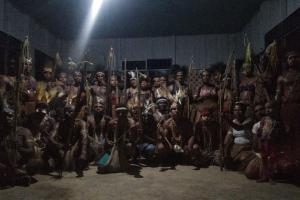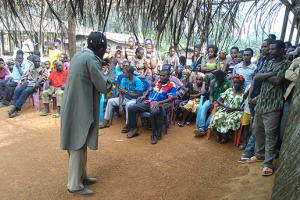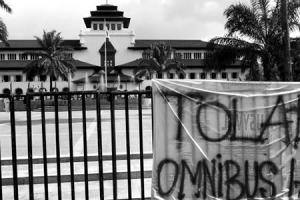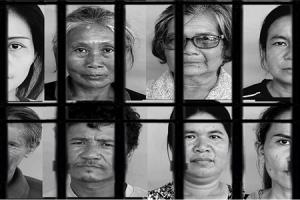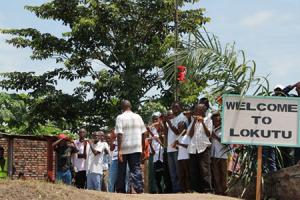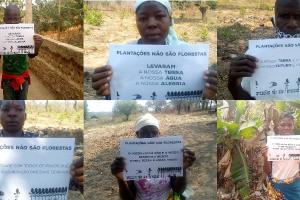Struggles Against Tree Monocultures
Corporate profit drives land grabs to install industrial tree monocultures. Where industrial plantations take root, communities' territories and lives are violently invaded, their forests destroyed and their water polluted. When communities resist, companies tend to respond with aggression. Despite this extreme violence, communities around the world are resisting, organizing and joining forces to defend their territories. Every September 21 the International Day of Struggle against Monoculture Tree Plantations is celebrated.
The Korindo Group cleared Kinggo’s Indigenous People’s forests for its industrial oil palm plantations. Petrus Kinggo and other community leaders were persuaded to give up customary forest land with misleading and false promises. Now they are fighting against the FSC-certified Korindo. (Available in Indonesian).
Communities in West and Central Africa are facing the impacts of industrial oil palm plantations. With the false promise of bringing ‘development’, corporations, backed up with government support, have been granted millions of hectares of land for this expansion.
The tactics and strategies employed to impose land control and extractive operations in the forests are many. Most of these tactics and strategies are criminal acts.
Patriarchal oppression is inseparable from the industrial plantation model, and it is at the base of how companies generate profits. Companies target women, including due to their fundamental role in community life.
Land grabbing in Brazil is a clear example of organized crime, of land theft from small farmers.
The government of Indonesia endorsed the criticized Omnibus Law by saying that it is “crucial to attract investment and ultimately create jobs.” The Law is a direct attack on the territories and communities resisting the increasing destruction that has been ongoing for decades in Indonesia. (Available in Indonesian).
How are forest crimes defined? In Thailand, forest-dependant communities, rather than the government and companies carrying out large-scale deforestation, became scapegoats for this destruction. (Available in Thai).
Why haven't Africa's post-colonial governments dismantled the colonial plantation model of exploitation and extraction, returned the lands to their people and emboldened a resurgence of Africa's diverse, local food and farming systems?
European development banks have financed a plantation company in DRC that is built on injustice and violence dating back to a colonial-era land grab. When the company went bankrupt in 2020, the banks chose to uphold the plantation model.
On the eve of the International Day of Struggle against Monoculture Tree Plantations, an open letter signed by more than 730 members of Mozambican communities, and 120 organizations from 40 countries has been released.
This Open Letter is a public reply from the Alert against the Green Desert Network from Brazil and WRM to an email from the investment department of the HSBC bank in the USA, requesting more information regarding the Suzano paper and pulp corporation in Brazil.
Despite the various tactics that try to hide the underlying harm and violence behind large scale tree plantations, each year, communities and movements raise up on September 21st to give visibility to their struggles and to denounce the detrimental impacts tree plantations have on their lives and territories.
